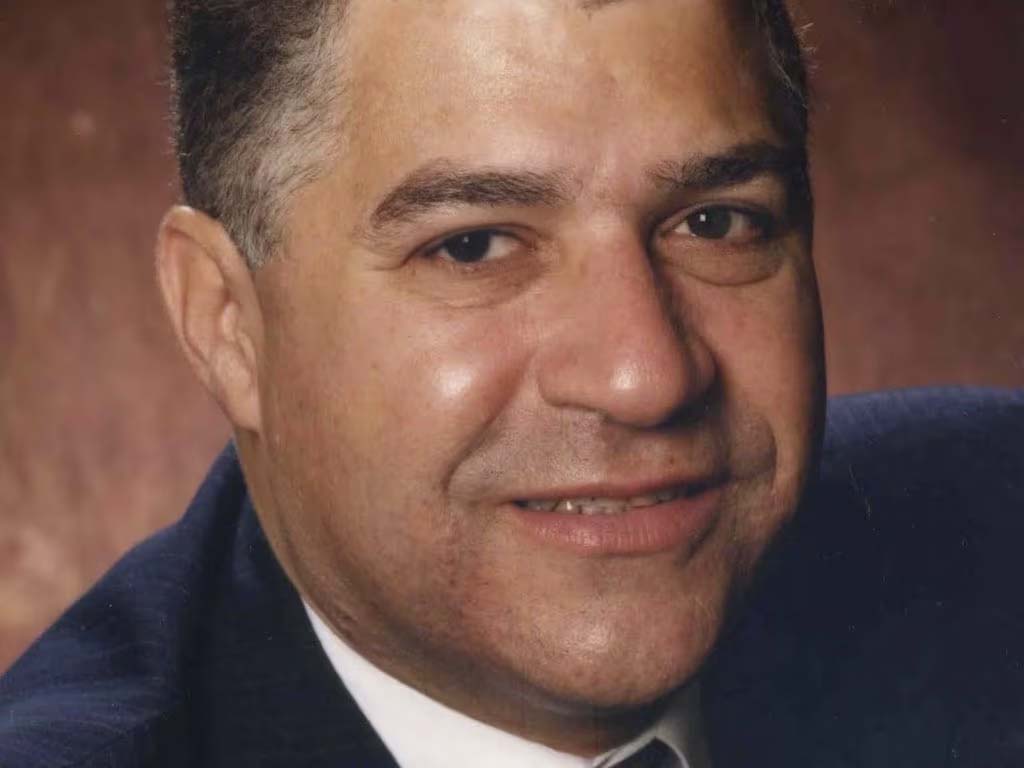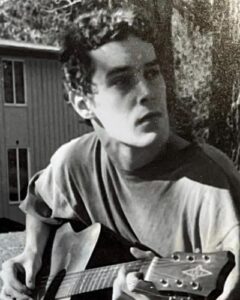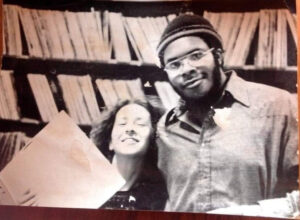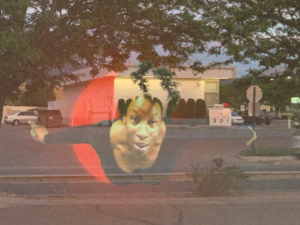There is a TV show called Orphan Black which follows a woman as she discovers that she has many identical clones all over the world, the intentional orphans of a top secret genetics project. I’m most interested in Orphan Black as an exercise in empathy. The main character sees the person she could have become, again and again, under different circumstances. She loves and hates these people, they frustrate and mystify her. Similarly, there is the person I was before Goddard, the person I was during Goddard, and the person I am leaving Goddard. We are sisters to each other, she and she and I, but we are not the same. Something deep about the way I move through the world has changed. Goddard gave me the perspective to look at and think critically about my life, to question once concrete assumptions, to think deeply about how I wish to spend my days. Goddard made me ask Who am I, as a writer in the world?
Ever since I was a small child I’ve been a lover of science fiction and fantasy novels. Not just a means of escapism and delight, science fiction represents a space in which people are actively dreaming outside of the preconceptions of our present realities. These imagined worlds, constructed by my beloved authors, were the only examples I had of people dreaming beyond capitalism, beyond patriarchy, beyond binary gender systems. Reading science fiction and fantasy represented a hopefulness to me that political theory couldn’t. It didn’t matter if the worlds were dystopian or utopian, it simply mattered to me that someone, somewhere, was actively thinking of a possibility beyond what we were told was reasonable.
Through the critical writing requirements of Goddard’s MFA program, I was able to study an incredible range of science fiction and fantasy writing. Writing critically about SFF made me understand that writing science fiction is my social activism, a place where I can imagine and create possibilities beyond patriarchy, beyond capitalism, beyond prisons. In my thesis novel, Seep, alien life-forms have come to Earth in the form of a viscous substance which enables empathic and psychic bonds between all things, changing society’s relationship to death, sexuality, economy, and isolation. I am now part of a lineage of writers, thinking beyond what we are told is possible. Dreaming these new worlds at my desk came naturally to me. But how would I take this form of activism into the world?
During our third semester at Goddard, we each do a teaching practicum in our community. I have been a writing mentor with the New York City non-profit Girls Write Now (GWN) for the past three years. GWN encouraged my idea for a month long workshop series on world-building in science fiction and fantasy to fulfill my teaching practicum requirements.
I nervously prepared elaborate lesson plans, creating workshops on updated myths, ritual and culture in imagined cities, incorporating drawing, music, and sculpture, even finding a video montage of death rituals from around the world. I wanted to get the girls thinking deeply about new possibilities for ways culture can form. But I knew I wasn’t simply asking them to write stories about princesses in towers— would they find my exercises too bizarre, too elaborate?
I shouldn’t have been so nervous. The girls who attended my workshops were voracious to write, to dream, to build worlds from their imagination. I had to work to keep up with them.
My friend Meghan McNamara, a former GWN program director who currently teaches robotics to middle schoolers in Brooklyn, came to observe my final workshop of the series. She was awestruck, as I had been, by the sheer motivation and mental dexterity of these girls, some of whom had already written full novels. Their ideas for future novels were more exciting than most things on my bookshelf. I left each workshop breathless, feeling as if I was engaging with the next wave of exciting new fantasy writers. There was also a feeling of kinship. Through the power of the internet, these girls had embraced their nerdom in a way that wasn’t available to me when I was a teenager. They were proud to be fan girls, to be into gaming, anime, and reading. They were proud to be enthusiastic and care deeply about their interests and their worlds. Being in their presence was very moving for me, as it was for Meghan. We started talking about how amazing it would be to combine her tech know-how with my creative writing prowess.
We envisioned the Octavia Project, an intensive summer program for teenage girls in Brooklyn, drawing inspiration from ground-breaking author Octavia E. Butler and her visions of possible futures. As her work was enriched by deep engagement with complex racial identities, queerness and environmentalism, we aim to create a space in which girls of Brooklyn can likewise engage through new means, exploring technology through writing, science through art and creation. As we began talking the Octavia Project into being, friends stepped forward to help us build our website, raise money, find space, and work on grants. If not for my pressure to complete a teaching practicum, the Octavia Project would never have been born.
Rather than graduate school being an immerse experience that takes you away from your life, a low-residency program allows the writer to be actively engaged in their present community, while disciplined in their daily living. This summer I will be Artist-In-Residence at the Octavia Project, mentoring the next generation of Science Fiction and Fantasy writers. And this person, this woman I have become over the course of the last two years, she exists because of Goddard. Many, many thanks.
Learn More about the Octavia Project here: https://www.indiegogo.com/projects/the-octavia-project
Bio: Chana Porter is a writer and teacher living in Bed-Stuy, Brooklyn. Her plays and performance pieces have been developed and produced at Rattlestick Playwright’s Theatre, Cherry Lane, The Invisible Dog, Primary Stages, Movement Research, PS122, and The White Bear in London. She has been an Artist-In-Residence at Space On White, CAVE, and Dixon Place. She has been a guest teaching artist at Hampshire College, Worcester Polytech, and Think Tank, a science and art learning center for teens. Chana is in the thick of writing a series of Science Fiction novels, Post Human Classics.








